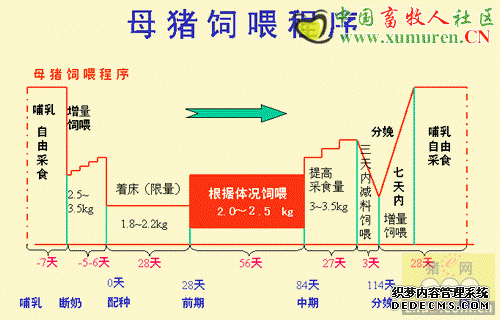By The Scottish Agricultural College - The post-war intensification of pig production has led to significant advances in output of pig-meat and decreased costs of production. This article provides the Introduction to work done at the SAC on Pig Welfare and links to the other pages of the report.
PIG
WELFARE
Contents
Introduction
Pre-farrowing
Delivery
Lactation
Summary
To continue reading this article, click on the chapter links above
Moral concerns
However, these benefits have to be set against society unease over the wider effects of this intensification process, including the concern that it has led to a significant reduction in pig welfare. The concern over pig welfare in modern production systems is a reflection of the general growth in moral concern over mankind抯 use of animals.
Impact on pig production
The current environment in which the UK pig industry operates is very different to 5 years ago. The industry now struggles to remain competitive as a result of factors often beyond its control, such as the strength of the pound and the increasing influence of world prices on the home market.
Animal welfare has made a small but well publicised contribution to decreasing the UK industry抯 competitive position, as UK legislation has required the building of alternative pregnant sow housing which has increased costs of production. At the same time there has been a clear shift from a 憇upply-driven?food supply chain, to a new scenario where consumer demands are increasingly important in determining markets.
In response to this producers and retailers have organised Quality Assurance (QA) schemes aimed at increasing consumer confidence that they are buying a product reared and processed up to specific standards.
Here the generally higher welfare standards in the UK have been used to help differentiate the UK product from competing pig-meat supplies. There is therefore an understandable sensitivity to animal welfare issues in the industry at present and uncertainty over whether animal welfare should be viewed as a threat or a marketing opportunity.
The role of science
Because of these widespread implications, it is important that any change in practice is based on sound reasons. Science is increasingly seen as having an important role in the ethical appraisal of animal use such as pig production. Scientific approaches can provide an assessment of animal welfare, for example by physiological measurements of 憇tress?
This research update explains how these approaches were used to assess the welfare issues surrounding the housing of sows in farrowing crates. Moral concerns over the use of close confinement systems have grown, and this booklet summarises SAC research aimed at providing scientific evidence to assess the significance of these moral concerns. More information about the project can be found in the background section.
Continue Reading
To continue reading this report click on the "Contents" links in the right hand panel above.Source: Scottish Agricultural College - February 2004
声明
来源:互联网
本文地址:http://farm.00-net.com/yz/zhu/5/2007-09-20/142355.html








